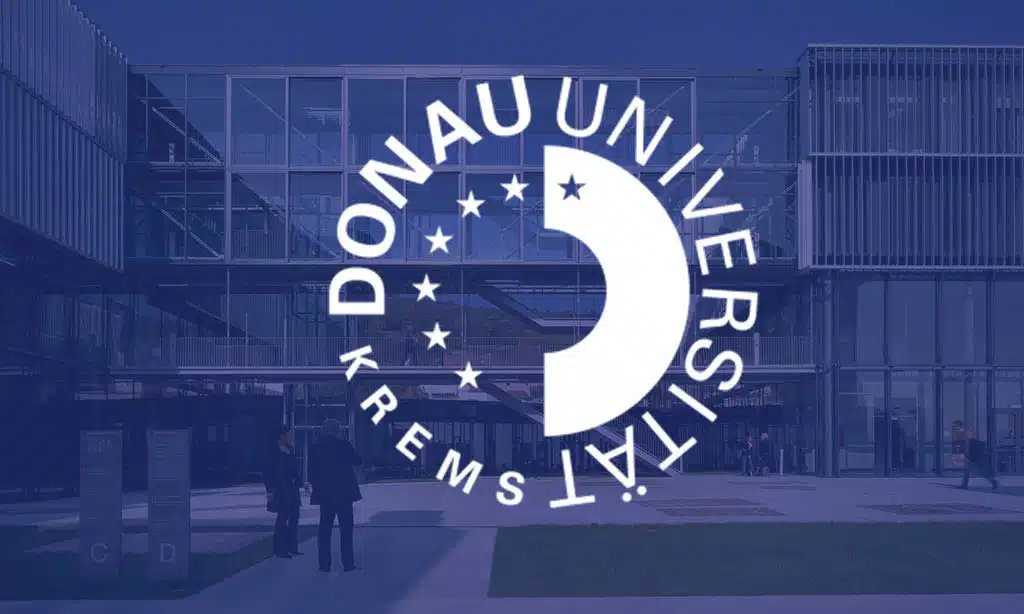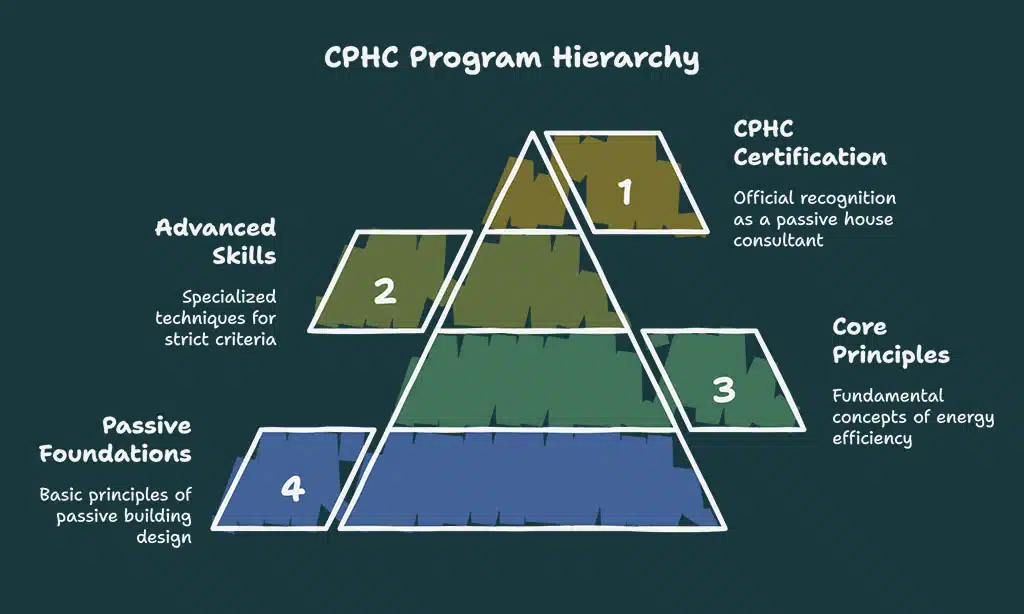Building energy-efficient homes is no longer just a trend. Many people want greener buildings that save energy and cost less to run. But knowing how to design these “passive houses” can feel overwhelming without proper training.
Good news: plenty of universities offer Passive House courses! Some even give certifications for designers or consultants. In this blog, we’ll talk about the top 10 universities offering passive house design courses and certifications.
Are you ready to explore? Let’s get started!
University of Innsbruck, Austria
The University of Innsbruck leads in energy-efficient building studies. Its programs dive deep into Passive House principles and sustainable design methods.
Unit for Energy Efficient Building
The Unit for Energy Efficient Building at the University of Innsbruck focuses on passive house standards. It promotes research and training in low-energy buildings, aiming to cut power use while keeping comfort high.
Students here learn about green building methods and sustainable design practices.
Experts teach how passive house principles lower heating needs and improve air quality. The courses cover tools like PHPP for energy modeling. This unit is perfect for future passive house designers looking to make homes eco-friendly and cost-efficient.
Danube University Krems, Austria
Danube University Krems offers hands-on courses that focus on sustainable building and energy-efficient design, making it a great choice for green thinkers!
Department of Building and Environment
This department at Danube University Krems focuses on sustainable building and design. It offers advanced passive house training for energy-efficient construction. Students learn about renewable energy, green buildings, and the passive house standard.
Courses include practical knowledge on creating eco-friendly spaces. Certified Passive House Designer programs are also available. These prepare students to meet global sustainability goals through modern design methods.
Vienna University of Technology, Austria
This university is a hub for learning energy-efficient design principles. It offers hands-on courses focusing on Passive House standards and sustainable architecture.
Institute of Architecture and Design
The Vienna University of Technology is a leading place for sustainable design. Its Institute of Architecture and Design stands out for research on energy-efficient building. Students here learn practical passive house principles.
Courses focus on designing passive houses to meet the Passive House Standard. The institute also covers renewable energy use in construction projects. Their curriculum trains future architects to reduce energy waste and promote sustainability.
Erfurt University of Applied Sciences, Germany
This university shines in architecture and energy-efficient construction. It’s a hub for learning practical Passive House principles.
Faculty of Architecture
Erfurt University’s Faculty of Architecture stands out for its focus on energy-efficient design. Their programs teach passive house principles using real-world projects. Students learn about renewable energy, the passive house standard, and building envelope performance.
The faculty emphasizes sustainable design in lessons. Courses include practical training and research opportunities tied to certified passive house standards. Graduates often advance as a certified passive house designer or consultant, gaining valuable career options.
University of Applied Sciences Rosenheim, Germany
Explore timber construction and energy-saving designs at Rosenheim, where architecture meets sustainability.
Master in Timber Construction for Architects
The University of Applied Sciences Rosenheim offers a Master in Timber Construction for Architects. The program focuses on energy-efficient and sustainable building methods. It teaches architects how to work with wood for eco-friendly designs.
Students learn Passive House principles, enhancing their skills in high-performance timber construction. This course combines renewable energy concepts with advanced architectural techniques.
Link Campus University, Italy
Link Campus University in Italy offers a Master in Building Eco Design. This program focuses on eco-friendly and energy-efficient architecture.
Master in Building Eco Design (BED)
The Master in Building Eco Design (BED) at Link Campus University focuses on integrating sustainable design with energy-efficient buildings. Students learn passive house principles and renewable energy technologies to create future-ready structures.
This program emphasizes practical training, preparing graduates to meet certified passive house standards.
It blends theory with real-world projects, ensuring hands-on experience in eco-friendly construction techniques. Graduates often pursue roles as certified passive house designers or consultants, contributing to a greener building industry.
Certified Passive House Designer (CPHD) Training
This program teaches how to design buildings that use very little energy. It offers both online and face-to-face learning options for flexibility.
Online and in-person courses
Learning passive house design is easier with flexible courses. You can choose online or in-person options to match your needs.
- The Certified Passive House Designer (CPHD) course offers both formats. It is ideal for architects and builders aiming to meet the passive house standard.
- Phius provides advanced training with the Certified Passive House Consultant (CPHC) Program. Experts teach sustainable design concepts step by step.
- The Scottish Passive House Centre runs a 3-day tradesperson course. This short program helps you gain passive house skills fast.
- Many universities, like Miami University, offer energy-efficient building classes in person, focusing on renewable energy and modern techniques.
- PHI creates accessible online resources too, making remote learning affordable and effective worldwide.
- Online CPHD courses often include live sessions and recorded modules, letting students learn at their own pace.
- In-person workshops give hands-on experience with passive house tools such as PHPP software and component certification processes.
- Whether online or face-to-face, both formats typically end with a certification exam to validate your skills officially.
- Courses cover core principles like energy-saving strategies, airtight construction, and high-performance materials usage.
- Online platforms may provide extra studies for sustainability-focused learners wanting deeper knowledge in less time than traditional methods allow.
Phius Certified Consultant (CPHC) Program
This program trains professionals to design energy-efficient buildings using Passive House principles, pushing your sustainable design skills to the next level.
Advanced training for sustainable design professionals
Phius offers the Certified Passive House Consultant (CPHC) Program. It gives deep knowledge of passive house principles. This training focuses on energy-efficient building methods.
Professionals learn to meet strict passive house criteria.
The course includes Passive Building Foundations training. This program is gaining attention worldwide from sustainable design experts. Both beginners and experienced designers can benefit from it, as it covers both core ideas and advanced skills in one go!
Graduate Certificate in High-Performance Building Design
This program focuses on designing energy-efficient buildings with top-notch performance. It’s a smart step for those wanting to lead in sustainable architecture and construction.
Focused academic certification programs
Universities now offer certifications to boost passive house design skills. Miami University teaches energy-efficient construction in architecture programs. Their courses focus on Passive House principles and renewable energy practices.
The Scottish Passive House Centre gives a 3-day Certified Passive House Tradesperson course. This program is perfect for tradespeople aiming to meet the passive house standard. Both options prepare individuals for real-world sustainable building challenges.
Benefits of Passive House Design Education
It opens doors to careers in green building and energy-efficient design. You gain skills that help create smarter, sustainable homes for the future.
Career opportunities and sustainability advancements
Passive house training opens doors in sustainable design. Architects, consultants, and builders find growing demand for energy-efficient projects. Certified Passive House Designers (CPHD) or Consultants (CPHC) hold key roles on eco-friendly construction teams.
These certifications align with the rising need for renewable energy solutions.
Sustainability advancements drive these learning paths. The Passive House Standard cuts energy use by up to 90%. This makes buildings cost-effective and eco-friendly. Universities like Miami University teach students skills to meet these goals.
Green jobs grow as businesses adopt passive house principles worldwide.
Takeaways
Learning about Passive House design opens many doors. These top universities and programs offer strong courses to build your skills. They teach energy-saving methods, hands-on techniques, and smart designs.
This knowledge can boost your career while helping the planet stay green. Start today, and make a difference with smarter building!
FAQs on Universities Offering Passive House Design Courses And Certifications
1. What is a passive house, and why should I learn about it?
A Passive House is an energy-efficient building that uses less power while staying comfortable year-round. Learning about it can help you design sustainable buildings and work with renewable energy systems.
2. Which universities offer certified Passive House designer courses?
Several top universities provide certified Passive House designer training, focusing on the Passive House standard and principles. These programs often include hands-on learning for real-world applications.
3. Can I become a Certified Passive House Consultant through these courses?
Yes, many of these universities offer certifications for becoming a Certified Passive House Consultant or Designer after completing their specialized training programs.
4. Do these courses cover topics like component certification?
Yes, most programs focus on key aspects like component certification to ensure students understand how materials meet the strict requirements of the Passive House Institute’s standards.
5. Are these courses only for architects or designers?
No, they’re not just for architects or designers! Anyone interested in sustainable design, renewable energy systems, or improving building efficiency can benefit from this training.










































